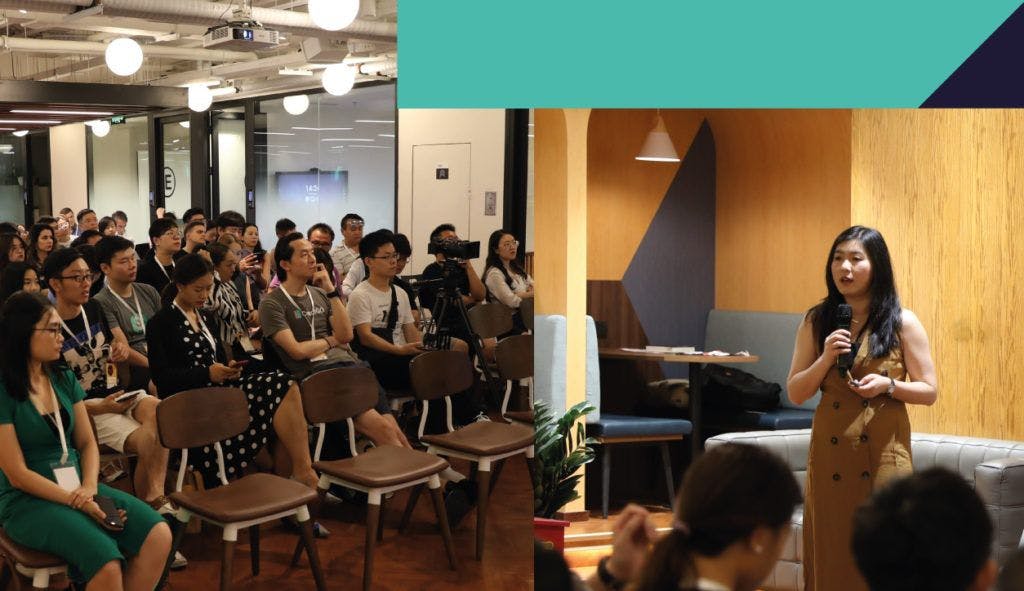On September 7th of 2019, Polymath Ventures hosted the first technology summit specifically focused on discussing Latin America’s technological landscape with the Chinese tech community. A big crowd of Chinese and Latin American entrepreneurs, investors, young professionals, and passionate tech-lovers showed up at The 2019 China-Latin American Tech & Innovation Summit in Beijing.
The Summit was structured in a way to facilitate the conversation around opportunities in Latin America’s tech boom. The Summit opened with a thorough and data-backed view of Latin America’s current digital transformation process and the case examples of how to succeed in this environment. The second part of the event focused on industry deep dives in FinTech, E-commerce, Mobility, and Logistics; the fastest growing industries in Latin America and where we see some of the highest momentum and opportunities.
Why we did it
In previous articles, we’ve talked about the data that has set up Latin America to be the next technological mega-hub. We have also explored why China can add significant value in Latin America given its extensive experience building digital services and products. Furthermore, we’ve seen a new trend of “going overseas to emerging markets” within the Chinese tech community and that is becoming more prevalent by the day.
The summit was part of our first Latin American Tech Expedition to China, where we took a group of prominent entrepreneurs and investors in Latin America to Beijing, Shanghai, and Hangzhou to meet with leading Chinese tech companies like Alibaba Group, Meituan-Dianping, Ele.me, CreditEase, among other relevant firms. We wanted to further understand both their ability to leverage technology to build powerful businesses and their interest in Latin America.
The content
Although highly interested, Chinese tech players cannot easily access quality information and the right network in Latin America. The Summit was a platform to bridge the information and connection gap between the two regions.
During the Summit opening, Wenyi Cai, Founder, and CEO of Polymath Ventures showcased how Latin America’s economy and market conditions are most similar to China compared to other emerging markets. She compared GDP per capita similarities between China and Latin America (US$17,000 vs. US$17,700, PPP), the equal level of smartphone penetration (71%) and the huge percentage that the middle class represents in each economy (30%).
In addition, she went over some numbers that showed the under-penetration of Chinese venture capital in the region despite having more similar market dynamics compared to regions like India or South East Asia, markets that have seen much higher Chinese investment in the past few years.
In the picture below, Lauren Connolley, Partner at QED Investors spoke about the reasons why the U.S.-based venture capital firm has made Latin America a key market in building its FinTech portfolio. She talked about their successes in the region, talking about Nubank and Creditas as clear business cases for companies that have successfully built affordable products and that have seen exponential growth.
Immediately after, Nadim Matuk, Investment Principal at Liil Ventures, spoke about Mobility in Latin America. Nadim talked about the inefficiencies of traditional public transport systems and the high costs of mobility. Nadim then explained how rising mobile phone connectivity has enabled the adoption of alternative ride-sharing options and emphasized the great opportunity that exists to build a connected mobility ecosystem to fulfill all transportation needs in a holistic and affordable fashion.
Finally, Pablo Sedano, Founder, and CEO of Enapsys spoke about the opportunity of developing better E-commerce infrastructure in Latin America. Pablo described the massive growth of e-commerce transactions in the region despite the latent infrastructure to support it, the lack of sufficient technology to improve it and the still cash-heavy environment.
And the conversation went both ways…
The Tech Summit was also a space to hear from local entrepreneurs and investors who are just starting to develop an interest in Latin America or who are already operating in the region. For us, this was a great opportunity to hear the local perspective and gather more insights on what are some of the burning questions that the Chinese have about our region. Locals yearned for more information about the perception of Chinese businesses in Latin America and the different strategies that Chinese tech firms have taken to enter Latin America.
It was especially interesting to observe the level of curiosity that local tech players showcased. Traditionally, access to quality information about Latin American tech has not been readily available, and we were glad to answer these questions in a setting that allowed for a meaningful back-and-forth conversation.
- How could China’s product strategy and technological expertise help build affordable services in Latin America?
- How could Chinese venture capital add value to founders seeking strategic guidance?
- How could the Chinese ecosystem-building approach turn into actionable methodologies for Latin American entrepreneurs?
These are some of the questions that we discussed and that we will continue to explore moving forward.
What’s next
In the coming weeks, we will be discussing in detail what we learned during the Latin American Tech Expedition to China. We will dissect Chinese business models and will trace a roadmap on how these tech giants got to where they are today.
We will also analyze the Chinese super-app and how their strategic approach to building products has made waves into other emerging markets. Finally, we will discuss how Latin American entrepreneurs, investors, and governments can become strategic players of the China-Latin America chessboard, and reap the benefits of an alliance that is long overdue.
If you would like to receive more information about China, our expedition or discuss perspectives feel free to reach us: [email protected].
